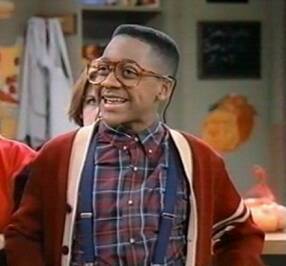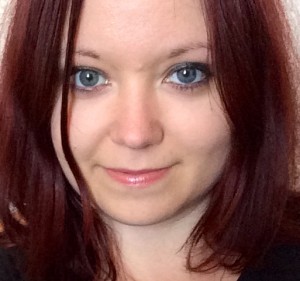I was born in Ukraine, my family immigrated to the United Stated when I was 12. Being the new girl, who did not speak a word of English, and coming from another country and from a poor family meant getting teased, bullied, and not even understanding what or why this was happening. My family worked long hours and whether I was home alone or surrounded by people in my Junior High School, I was very lonely. It seemed like there was no one that was safe enough for me to talk to or connect with… that is until I started watching TV Shows.
I was battling a really bad episode of depression when I started watching Full House. The love, support, and warm interactions between the Tanner family made me feel as if I was a part of their family as well. I felt less lonely, I felt that I had something to look forward to when I come home – maybe my family wouldn’t be greeting me but at least the cast of Full House would. I even tried to incorporate what I’ve learned from the show into my interactions with my family by trying to hug my mom but she told me that “it’s not something we do, it’s something that Americans do.” So I kept my TV shows to myself.

Soon I began watching other TV shows as well, such as Family Matters and Fresh Prince of Bel Air. I was watching them with closed captions on, so that I could read the text while hearing the speech and because of that I always joke that Urkel taught me English. The truth is, he taught me a lot more than that. He taught me that it’s ok to be a nerd, that it’s ok to be different even if the entire world doesn’t agree with you. He taught me to stand up for what’s right even if it means going against a popular opinion, and to be true to yourself.
After two months of struggling, I was finally fluent in English and over time I was able to become friends with another immigrant girl. What made our bond especially powerful were the shared experiences we had of being different, of being misunderstood, as well as our love for TV Shows. We would spend hours discussing what our favorite characters were going through, psychoanalyzing them, and essentially creating our own form of fan fiction. Making connections with these shows and with my new friend allowed me to overcome depression and find myself.
Over the years, my love for TV Shows continued and expanded into other shows, such as Buffy, FRIENDS, Big Bang Theory, Doctor Who, Sherlock, Grimm, and many others. However, it wasn’t until the past 2 years that I started thinking about how TV Shows can help other people heal as well. I started using examples from TV Shows, as well as other geek culture media, such as fantasy/sci-fi books, comics, movies, etc. in my therapy sessions with my clients.
At the time it did not even occur to me just how powerful it can be to discuss your favorite show, your biggest passion with someone else. My patients were telling me that they had never before been asked about which shows/books/movies they like and were previously too shy or ashamed to talk about it. One of my patients was initially too embarrassed to tell me that Harry Potter was her favorite book because she was previously told that it’s not a proper work of literature. Yet using the very characters that inspire us, the mutants from X-Men that show us that it’s ok to be different, the heroic acts seen in Buffy, and the powerful experiences we see in Doctor Who, can provide an important insight into what we value and what we need. Perhaps what we really need is to be accepted like X-Men, or perhaps it is to have reliable friends, like John Watson, or perhaps it is to find true love. The point is that our passions matter, they matter to us, and they matter for a reason.
I recently had a friend of mine tell me how validating it was to hear a psychologist tell him that it was ok to like Star Trek and go to Comic Con. First, not only do I think it’s ok, I encourage it. I think that people should follow their passions (so long as it doesn’t interfere with other things that are important to them as well).
Second, if this post does nothing else, I hope that it leaves you with the idea that you do not need me or anyone else to tell you what to like. Be proud of who you are. “It’s like the people who believe they’ll be happy if they go and live somewhere else, but who learn it doesn’t work that way. Wherever you go, you take yourself with you. If you see what I mean.” (Neil Gaiman, “The Graveyard Book)
Warmly,
Shadow Quill


Hi Janina
I am Noma from the Eastern Cape
I need your help
I have 2 female friend that lost their spouses in 2021/2022 respectively.
As friend i notice severe depression to both that may be caused by loss and abuse by in-laws
Denial is also another sign i noticed
And many , what help can you give to assist these friends of mine
Please i am looking forward for your help
Thank you
Hi Norma,
I am so sorry, I’ve only now seen your comment. I apologize for the delay. I’m so sorry about your friends’ losses. They might benefit from counseling, if they are open to it. Psychology Today is a great place to look for providers. There are also some free and low cost support groups out there, such as Grief Share, and several others. I hope this helps